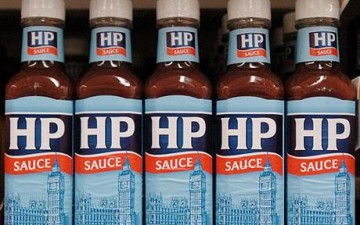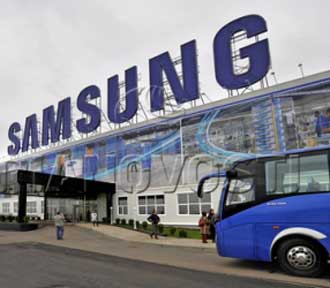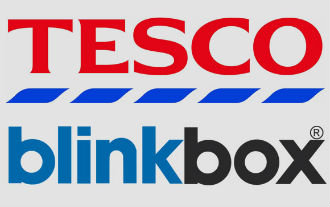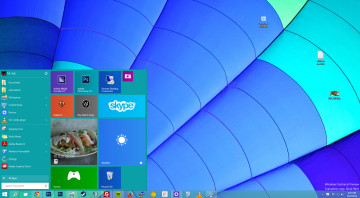 A report claimed that over a billion people in the world will use a tablet this year – that’s 15 percent of the world’s population.
A report claimed that over a billion people in the world will use a tablet this year – that’s 15 percent of the world’s population.
 A report claimed that over a billion people in the world will use a tablet this year – that’s 15 percent of the world’s population.
A report claimed that over a billion people in the world will use a tablet this year – that’s 15 percent of the world’s population.
 The Australian National University (ANU) claimed that a prototype quantum hard drive it’s developing has improved storage times by as much as 100 times.
The Australian National University (ANU) claimed that a prototype quantum hard drive it’s developing has improved storage times by as much as 100 times. The European Semiconductor Industry Association (EISA) released data for November 2014 which showed sales were up by 3.4 percent compared to the same month a year before.
The European Semiconductor Industry Association (EISA) released data for November 2014 which showed sales were up by 3.4 percent compared to the same month a year before.
 A report said that Google lost US search share in December while Yahoo gained share for the first time in a long time.
A report said that Google lost US search share in December while Yahoo gained share for the first time in a long time.
 Open Sauce depository Github is being hit in a crossfire between porn companies and torrent sites.
Open Sauce depository Github is being hit in a crossfire between porn companies and torrent sites.
Several Digital Millenium Copyright Act (DMCA) complaints filed to Google by the porn companies have taken down dozens of legitimate GitHub URLs.
GitHub support pages, entire code repositories, and user profile pages have all been purged from Google and Tomasz Janczuk, a former Microsoft employee, had part of his GitHub repository removed from Google’s search results by a company representing Adam & Eve, a porn production company.
Janczuk said that removing GitHub pages from Google’s search results could harm the open source software community by reducing its visibility online.
Apparently Adam&Eve thought that Janczuk’s URL, “https://github.com/tjanczuk/edge,” was apparently too close to The Edge, a 2001 flick made by the company.
Of course it is not just the porn companies doing this. Other GitHub pages have been taken down by the music companies for similar reasons.
All of it is because the content groups are using the dumbest method to find P2P content – that of URLs rather than actually checking if the site infringes their copyright.
GitHub does have a DMCA policy requires that users be notified of complaints levied against them and given time to correct the issue. Google handles its 345 million yearly takedowns nearly automatically .
Nicky Case, developer of Nothing to Hide, an open source indie game was targetted by Total Wipes in September for having the word “hide” in its GitHub URL, in an email. In the end however his software was not taken down from Google’s search results.
But he said that if his GitHub repository was less famous, maybe it wouldn’t have gone as well.
 Samsung confirmed its first annual profit decline since 2011, but said that a fourth quarter pick up indicated that earnings may have stabilised.
Samsung confirmed its first annual profit decline since 2011, but said that a fourth quarter pick up indicated that earnings may have stabilised.
The smartphone maker lost market share for three consecutive quarters up to July-September, and analysts say the trend likely continued in the October-December period.
The Tame Apple press claims it is because Samsung cannot beat the super bendy iPhone 6, but it is more likely that Samsung has seen its Chinese market disappear to locally made brands. It has also suffered from a weak won, which explains its limp.
Healthy memory chip demand and improvements in the mobile business on the back of new mid-to-low tier smartphones are buoying hopes that Samsung has at last staunched the bleeding.
Samsung said its fourth-quarter operating profit is likely to be $4.74 billion, beating what the cocaine nose jobs of Wall Street had predicted.
The outlook means Samsung’s 2014 profit will probably be the weakest in three years, although it marks a rebound from the third-quarter’s profit which was the firm’s lowest quarterly result in more than three years. The company is expected to release its annual results later this month.
Most analysts expect profits to continue improving through at least the second quarter of 2015 with the outfit’s semiconductor division to do much better than the mobile business in October-December.
The company did not provide a breakdown of its earnings figures in Thursday’s outlook, but a person with direct knowledge of the matter said that components sales picked up across the board, with healthy demand for memory chips and higher liquid crystal display panel prices.
The mobile division’s contribution to Samsung’s profit has slipped from about 68 percent at its peak in 2013 to about 44 percent in the third quarter.
 TalkTalk confirmed that it has written a cheque for Tesco’s Blinkbox Movies business and in a three for two deal bought the supermarket giants budget fixed line broadband and phone customers.
TalkTalk confirmed that it has written a cheque for Tesco’s Blinkbox Movies business and in a three for two deal bought the supermarket giants budget fixed line broadband and phone customers.
Tesco has been suffering from a pile of financial hurt and has been looking to offload some of its less lucrative assets. Web-based Blinkbox video streaming service was given a kicking from better offerings from Netflix, Amazon and NOW TV.
Tesco originally took ownership of Blinkbox for £3m in 2011. Since then the supermarket giant has added Blinkbox Books through the £4.5m acquisition of digital book service Modcast and they later paid £10.8m to buy music streaming service WE7, which was turned into Blinkbox Music.
But the service has not made enough cash and last we heard made a post-tax loss of £24.7m on total revenues of just £3.5m.
Vodafone and TalkTalk were known to have an expressed an in the service.
TalkTalk said that the integration of blinkbox with its YouView based TV business would “begin immediately” through a restructuring of the combined platform.
Adrian Letts, Blinkbox CEO and Co-Founder, will join TalkTalk as Managing Director for TV and report to Tristia Harrison, Managing Director of the ISPs consumer business.
Buying Tesco’s broadband base is another example of TalkTalk trying to make its national network to grow faster.
Apparently Tesco’s broadband customers, which were still using Vodafone’s LLU telecoms network, will be transferred across to the TalkTalk platform by September 2015.
 Microsoft’s forthcoming OS Windows 10 has been praised to the skies by thinkpad maker Lenovo.
Microsoft’s forthcoming OS Windows 10 has been praised to the skies by thinkpad maker Lenovo.
Lenovo Peter Hortensius, chief technology officer at Lenovo told PC World that customers are anxious to breathe some life into Windows 10 and his outfit was bullish and hopeful about Windows 10.
Windows 10 will succeed Windows 8.1 operating system, which has been slammed for its touch-based tablet user interface. Windows 10 will resolve many problems affecting Windows 8.1, which is a good OS but has its problems, Hortensius said.
Windows 10 will boot straight to the desktop and brings back many familiar Windows 7 features, which Microsoft hopes will please OS loyalists. It also removes program incompatibility issues plaguing Windows Phone and Windows 8 versions for Intel and ARM processors.
Analysts have said Windows 10 could spur a round of PC upgrades in businesses, which could boost PC shipments. Lenovo’s shipments have increased even as rivals like Dell and Hewlett-Packard struggled in recent years as laptop and desktop shipments slowed.
Customers are responding well to changes in Windows 10, and Microsoft is taking the right approach in developing the OS, Hortensius said.
Lenovo was positive about where the product was going and depending on customer demand, Lenovo may consider the OS for a range PCs, tablets and handsets.
“It’s up to Microsoft to make competitive offerings. If they do… we’ll gladly use it,” Hortensius said.
 After it released its iPhone 6 which bent in your pocket, the more cynical amongst us thought that Apple might try to make this a “feature”.
After it released its iPhone 6 which bent in your pocket, the more cynical amongst us thought that Apple might try to make this a “feature”.
Sure enough Apple has won a patent for flexible display tech that allows for layering of components like microphones or speakers
Flexible displays, in and of themselves, are nothing new. What makes this patent different is that it includes support for components — like buttons, microphones, or speakers — that can be mounted around the display and work through it.
So in other words when the phone bends everything else bends with it – exactly the effect when you put a bad structurally designed phone in your skinny jeans and the whole thing bends.
What appears to have happened is that Apple did not just make its bending on its iPhones a feature, it actually took out a patent on it.
According to Patently Apple this flexible display is capable of being bent and acting as a pass-through device that can handle a wide range of functionalities.
Apple envisions people bending or in some way manipulating the screen to touch a button activator below its surface.
By deforming that specific portion of the display, the activity associated with the button would be created. In another example, the flexibility of the display would create a porous layer that would allow for sound waves to pass through. Therefore, speakers and microphones and other components could sit under a screen and work as they do now.
Actually, it does appear that using this technology Apple could build a phone which is all-screen or nearly all-screen in design which will mean the death of the home button.
 Scientists at the Griffith University in Queensland claim quantum physics will help protect data on the internet.
Scientists at the Griffith University in Queensland claim quantum physics will help protect data on the internet.
 A number of official Gernan government sites have been hacked by a group that claims affinity with the Russian government’s moves in Ukraine.
A number of official Gernan government sites have been hacked by a group that claims affinity with the Russian government’s moves in Ukraine.
 Manufacturers of X86 based servers are taking market share from intermediary companies such as Dell and HP.
Manufacturers of X86 based servers are taking market share from intermediary companies such as Dell and HP.